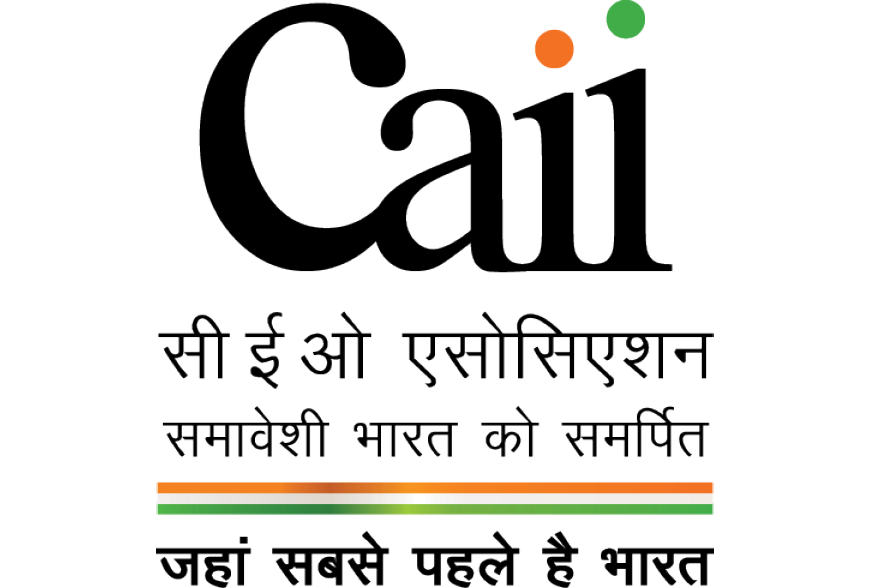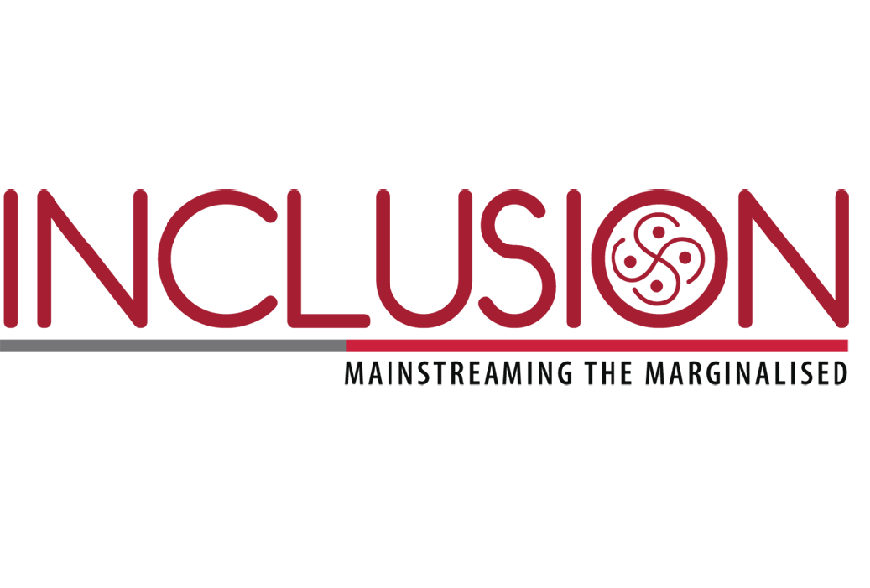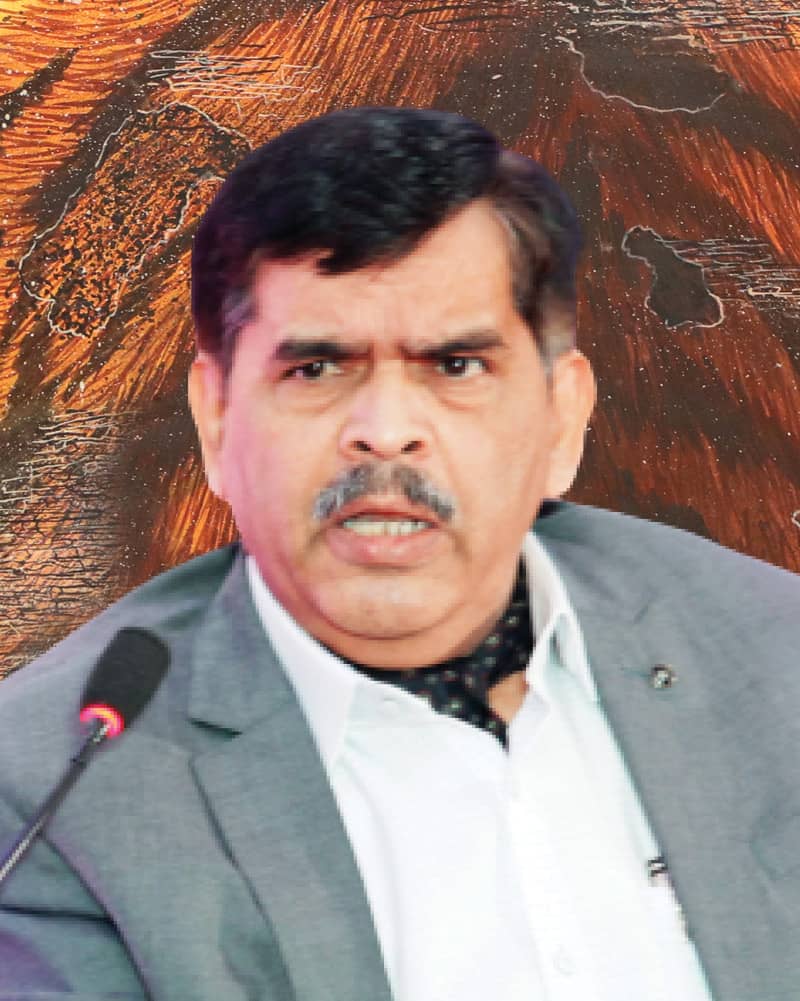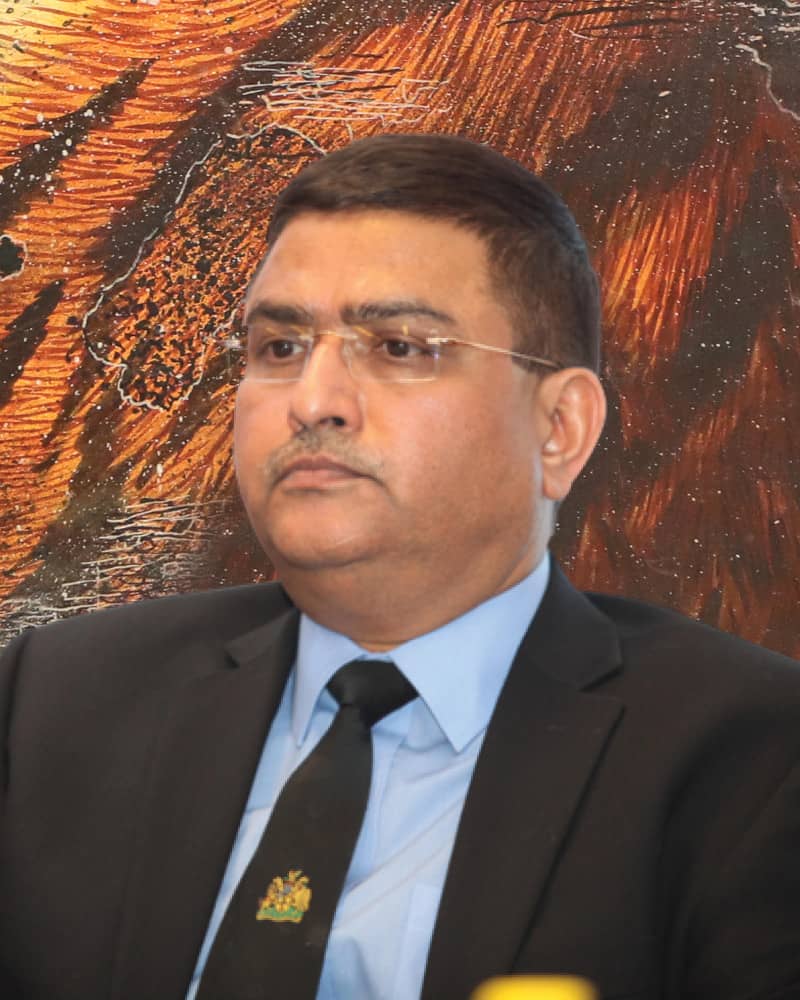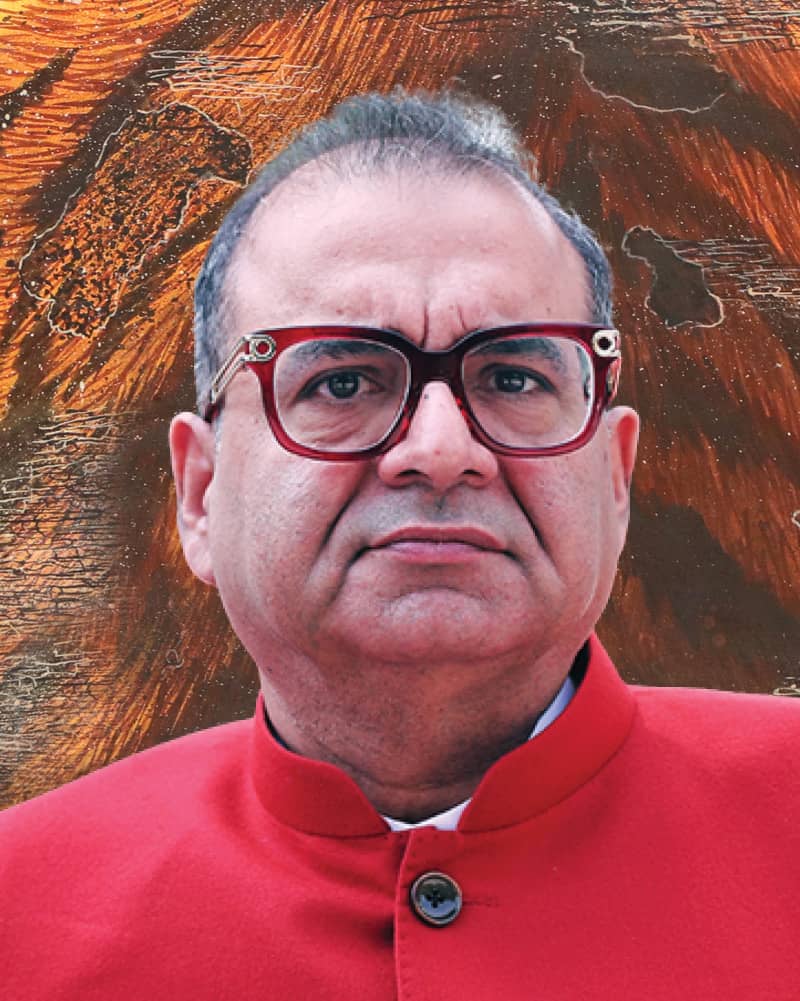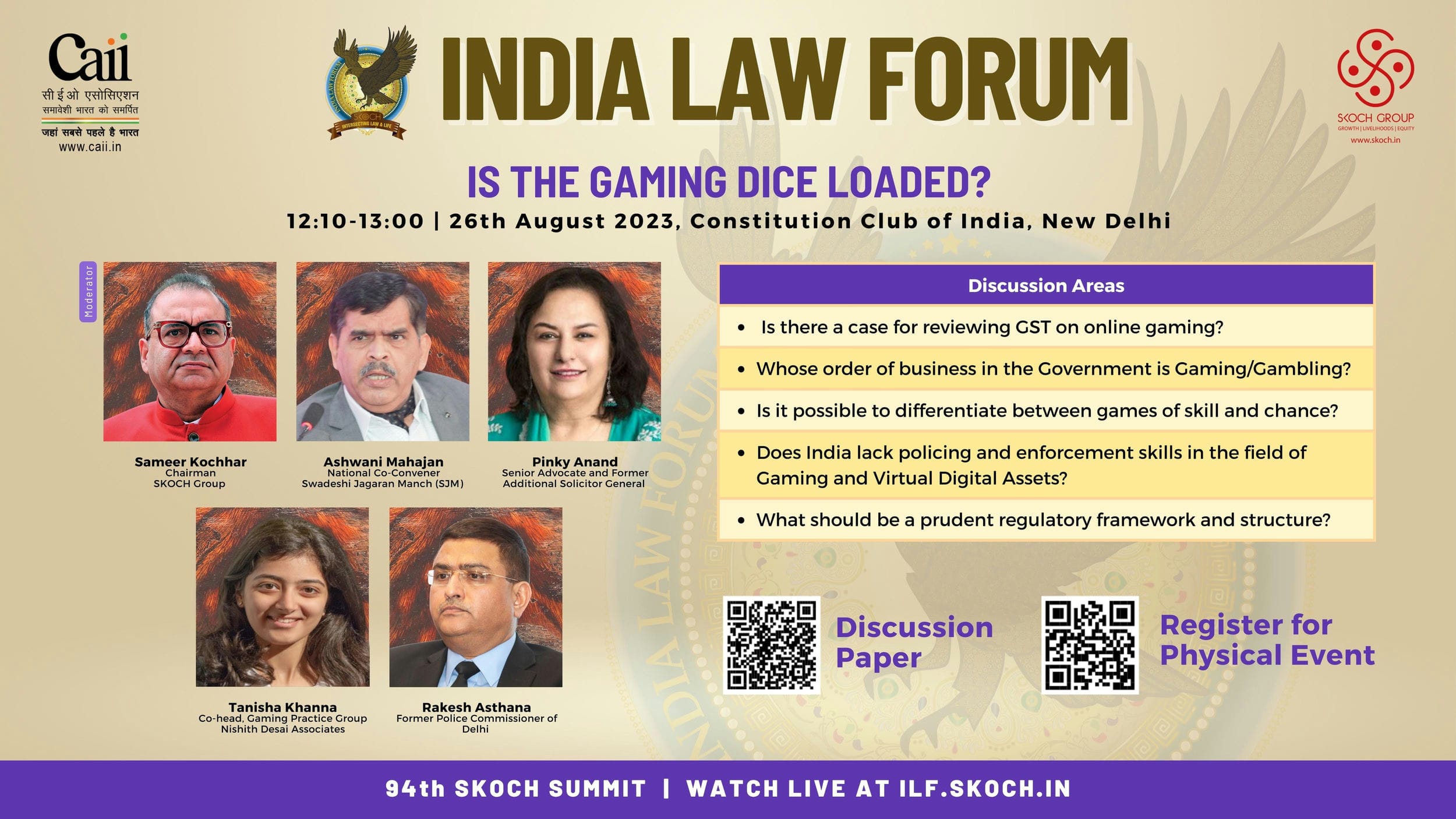
| 12:10 - 12:15 | Opening Remarks: Sameer Kochhar, Chairman, SKOCH Group |
| 12:15 - 13:00 | Policy: Is the Gaming Dice Loaded? |
| Is there a case for reviewing GST on online gaming? | |
| Whose order of business in the Government is Gaming/Gambling? | |
| Is it possible to differentiate between games of skill and chance? | |
| Does India lack policing and enforcement skills in the field of Gaming and Virtual Digital Assets? | |
| What should be a prudent regulatory framework and structure? | |
| 1300 - 13:01 | Sargam |
| 13:01 - 13:30 | Star of Governance Awards |
| 13:30 - 13:31 | Vishnu Aradhna |
| 13:31 - 14:00 | SKOCH Governance Awards |
Discussion Paper
IS THE GAMING DICE LOADED?
Sameer Kochhar
SKOCH Group has organised several national consultations on online gaming/gambling in the last two years. The larger picture is that gambling has deep cultural and social roots in India and the gaming industry sees this as an opportunity. It is to be remembered that gambling has been dubiously impacted shaping history. A game of chance played with a loaded dice led to the Mahabharata. Numerous examples from the past should guide policymakers. Gambling in all its manifestations, including the online gaming industry, needs regulation.
In recent years, the growth of real-money gaming has been exponential. Online gaming industry has reached a value of over about $200 billion by the end of 2022, growing at a compounded annual growth rate of about 10%. In India, the growth is even more phenomenal, like a raging forest fire, registering a compounded annual growth rate of 40%, reaching a market value of nearly $3 billion by the end of last year.
But the vast money at stake is only one of the several issues that have come to the fore with the rapid emergence of this industry. Real money gaming and online gambling constitute a big chunk of India's overall online gaming industry. There are concerns about the legal status of these activities and questions about whether or not real money gaming and online gambling should be allowed to operate.
A majority of these concerns emanate from the sociological implications of gambling. There can be a multitude of societal problems ranging from addiction to financial losses for people if real money games with elements of betting continue to operate without the necessary regulatory oversight.[1]
THE GAMING CONUNDRUM
The industry of late has been going through a lot of churn. On 11 July 2023, Finance Minister Nirmala Sitharaman announced that the Goods and Services Tax (GST) Council in its 50thmeeting has given its nod to impose 28 per cent tax on online gaming, horse racing and casinos on their full face value. There are over 400 million online gamers in India and out of these around 100 million are regular gamers.
The Finance Minister said that the tax will be imposed on the face value, regardless of the game being based on skill or chance. Various industry bodies representing gaming companies submitted their inputs to Finance Ministry. The matter came up for review and discussion once again during 51stGST Council meeting held on 2 August 2023. The government decided that the new regime will be implemented from 1 October 2023 and also that this decision will be reviewed based on evidencesix months after it is implemented.
On the issue of betting, Revenue Secretary Sanjay Malhotra said, "Betting is already liable to GST today and it does not make it legal.... Betting and gambling are illegal and liable to tax. Taxing online gaming will not result in legalising online games in those states which have banned them.
SKOCH AND GAMING
SKOCH had published a discussion paper just a day ahead of 51stMeeting of GST Council meeting on 2 August 2023, recommending that there is no difference between Gaming and Gambling and also that any decision to review it should happen only after due process of evidence gathering.
There are concerns about the legal status of these activities and questions about whether or not real money gaming and online gambling be allowed to operate. The very first question that arises here is that whose order of business is gaming/gambling? Should it be Ministry of Electronics and IT (MeitY), Ministry of Information and Broadcasting (I&B) or Ministry of Finance or some other ministry. Several arguments have been applied including that since it is using digital platforms, it ideally should be with MeitY. But by the same yardstick, all other digital initiatives like e-Courts, Computerisation of Panchayats and Land Records etc should have been with MeitY!
To cite a past example of such a thing not working is the Citizen Service Centres (CSC) scheme during mid-2000, which was proposed to be housed in Panchayats,ipso factoimplying computerisation of Panchayats. In fact, it was a tenant sitting with a computer in Panchayat premises. SKOCH Group made a representation to the Ministry of Panchayati Raj (MoPR) then, saying that Panchayats need to be computerised on a standalone basis handling their own finances and performing Panchayat functions. SKOCH Group was subsequently invited to be part of the Committee constituted for Computerisation of Panchayati Raj System headed by B K Gairola, DG, NIC. Our contribution to the report was on defining functionality. This paved the way for creation of National Mission on Panchayati Raj, which finally led to real computerisation of over 2.5 million Panchayats.
Another issue is that while gambling is a state subject, where would gaming be? Would it be treated as a central, state or a concurrent subject? So the constitutional position also has to be clear.
Now gaming/gambling is taxed at the highest slab, i.e., 28 per cent, that puts it at par with the entertainment or hospitality industry. But if you say that skill is better than chance, should there is another tax slab for this? It calls for a broader definition, framework and consultation. It also goes against the ethos of GST which believes in rationalising tax slabs under 'One Nation, One Tax'.
Gaming and gambling, both are betting and wagering as said by Finance Minister. So could games of skill and chance be separated? In most countries, it is regulated by gaming commissions or gaming regulators. Research suggests that Self-Regulatory Organisations (SROs) generally do not work and particularly so when it comes to sin industries.
Last but not the least, benchmarking should be called for gaming/gambling as well. On skill vs chance, the technology will need to be tested to know whether it is a game of skill or game of chance. Whether certified by SRO or the government, it will be difficult to find out if the benchmark is not loaded. This would require safety mechanism to be put in place for benchmarking. The source code should be auditable and available for testing with any academic institution independently. It should not be allowed to be a case as benchmarks as was with UNIX based machines decades ago, which worked well only with particular brand of hardware.
It also calls for more and more national level consultations to gather evidence, studying parameters and also to see if the GST revenues from gaming have actually increased or decreased. By March 2024, SKOCH would have organised several such consultations involving all stakeholders including industry to seek clarity on such and more issues as they emerge.
The paper seeks to put some of these issues in perspective and deals in greater detail as given below.
THE ONLINE GAMING INDUSTRY INTRIGUED THE VENTURE CAPITALIST (VC)
The VCs see enormous potential in India, primarily in online gaming. There are pooled funds allocated to businesses of remarkable growth potential but risky as well. The VCs are behind so many technology-driven innovations-somewhat disruptive in nature, for they profoundly impact how we will live, work, play in the future. Lately, they are betting on early-stage capital on deep-tech areas like the Blockchain, AI, cryptocurrency and Fintech-technological innovation in designing and delivering financial services and products, semiconductors and climate-tech. The list of these disruptive technologies that attract VCs is growing as innovations throw new possibilities. Online gaming is a hot favourite.
Not just the capital, the VCs provide valuable guidance and market linkages and help create a conducive environment for growth. They target technological disruption as it leads to legal grey areas. The laws were kept from dealing with the tech-created new reality. Without any framework of regulation, there's greater scope for market growth, deeper penetration and excellent profits to be made before statute comes to terms with this new reality of doing things and deals with a technology-induced disruption. There's a discernible pattern, more often than not, VCs leave when authorities get a hold of the situation and regulate the market as per the statutes and the rule of the land, and look for greener pastures.
From the perspective of VCs, India is the place to invest in the online gaming sector as the legal and regulatory framework are conspicuous in the absence-that is a business opportunity. They are good at creating popular support by carrying out media campaigns for online gaming, also initiating legal battles in various High Courts against State governments who impede their spread and growth, The support material is created by funded research, or conveniently self-certifying games as 'skill augmenting' and using it as a piece of evidence in the court for allowing to function unfettered and unregulated.
Industry-funded voices create a popular perception that gaming is a panacea for all social and economic challenges India faces today. They go to the extent of propounding theories that gaming augments learning skills in children and is integral to digital education and creating technical manpower.
THE PROLIFERATION OF LOBBYISTS
There has been a proliferation of lobbyists who percolate in the system to create a conducive mindset for certain decisions to be made in favour of the interest group they represent. They use all possible means to change the long-held approach to specific issues or try to explain the problems in a new light.
VCs employ talented lobbyists for enhanced access to the market and for initiating a dialogue with the decision-makers in the establishment. And the situation is such that every person walking the corridors of power is taken as a lobbyist, trying to convince people in the government that changes in the way they represent, is good for the nation. Operationally, some sections of the media have become an instrument of lobbying. Certain journalists have done well for themselves by opening the doors of the establishment for the agents of interest groups.
Unlike in the United States, where lobbying is routine and regularised by the Lobbying Disclosure Act (LDA) of 1995, lobbying in India is not regularised. Perhaps, it's time that India also looks at regularising the lobbying space by defining the game's rules.
In the absence of it, the situation may get out of hand. A good example is when in 2013, the world's largest retailer—Wal-Mart Stores Inc.—in a routine disclosure report to the US Congress that it had spent $25 million on lobbying activities, including on issues related to 'enhanced market access for investment in India." Based on this disclosure, India started an internal investigation for potentially violating India's Foreign Corrupt Practices Act. It created a political hailstorm with accusations of bribery to some of India's political leaders. 'It has been officially confirmed that Wal-Mart Company has indulged in lobbying in India, or in simple terms indulged in bribery," said Ravi Shankar Prasad, the then spokesperson of the BJP-was in the opposition.[2]
SKOCH GROUP RAISES FUNDAMENTAL QUESTIONS
SKOCH Group organised a series of national conferences on online gaming in 2021-22. After considering the factual premises and understanding the dynamics of the industry and the players. Based on the consultative process, and research, it is but rational and essential that a uniform structure of taxation be applicable for all games, be it based on chance or seen as skill augmenting. It's imperative if the technology-intensive gaming industry in India is to be successfully regulated.
SKOCH Group is of the view, given our extensive research and engagement with the stakeholders, that all efforts to obfuscate the debate will be counterproductive as help interest groups confuse the policymakers, and mislead them into creating a policy regime that will unduly favours the digital avatar of the age-old practice of gambling.
To understand online gaming in terms of its nature, impact, business, regulation, and government perspective, let's break it down into a few fundamental issues and then deal with them one by one in this paper:
- The nature of online gaming: isn't it akin to gambling?
- Who gets to decide whether a game is skill augmenting/educational or based on chance, wager in nature?
- Can self-regulation be an appropriate policy choice for the government instead of keeping a vigil and defining the game's rules for the gaming industry?
- Isn't self-regulation without the enabling legislation or regulatory framework compromising the interest of people and the country?
- What should be an appropriate tax for the gaming industry, given its inherent nature and possible impact on society?
THE NATURE OF ONLINE GAMING OR GAMBLING
From the lens of the regulator, it's fairly obvious that online gaming is a burgeoning platform with a host of products and services being offered that can easily be monetised, almost ready money.
In the way it operates, the gaming industry is not very different from stock markets. A consumer invests Rs. X on a platform hoping to make a certain amount say Rs X+ and a potential risk of losing Rs X. In simple words, the motive of the consumer in playing games is to make money. Think of it, it is not very different from a broker trading stocks and bonds on a stock exchange platform to garner profit.
But here lies the big difference, unlike the gaming industry, stock markets are highly regulated activities monitored by various agencies. However, online gaming companies are vehemently opposed to being subjected to regulation. They argue that any form of regulation will be counterproductive, as gaming is just a platform that allows consumers to play by pitting one against the other and making financial gains. The platform itself is not part of the game and, therefore, isolated with the reward of monetary gain and the downside of monetary loss.
Experts say that there is a need to ensure that legitimate operators are protected and the illegitimate ones are weeded out and that the guidelines should be balanced and not be over-prescriptive in nature. Otherwise, gamers will turn to fly-by-night operators where they are at extreme risk. Players have to be protected, that's non-negotiable, as is data privacy and security.
GOVERNMENT TREATS ONLINE GAMING AKIN TO GAMBLING
The 50thmeeting of the GST Council-the apex decision-making body on GST comprising the Union finance minister and representatives from all states and Union Territories-has agreed to tax online gaming, casinos, and horse racing at 28 percent. At a press conference, the union Finance Minister Nirmala Sitharaman made it amply clear, 'There will be some amendment to the GST law to include online gaming in it. And simply put, online gaming, casinos, and horse racing will be taxed. They will be taxed at 28 percent and they will be taxed on their full-face value.[3] The GST Council reflects the collective will of the people of India, 'one nation one tax, and eventually one market.' Now it is official that online gaming is wagering akin to gambling like casinos and horse racing.
Despite several attempts by the industry associations, funded by the gaming industry and the competing industry factions, lawyers and lobbyists tried hard to obfuscate the regulatory debate on online gaming. Resisting all the pulls and pressures, the GST Council, after a series of deliberations by the Group of Ministers, in its 50th meeting, proposed a 28% GST Tax rate on the full-face value of gaming transactions.
The Revenue Secretary, Sanjay Malhotra, explained that it was a 'unanimous, emphatic, equitable decision of the GST Council on e-gaming.[4] On the possibility of review following concerns expressed by the online gaming industry, Malhotra said, "The council was unanimous. It has taken this decision after due deliberation. It has taken this decision after consultations with the industry. There was a long consultation as you are aware that this decision has been pending for the last two to three years."[5]
Not just that, the GST council has made its decision and, therefore, feels no need to consult any further the gaming industry and seek the required amendments to operationalise the decision in the upcoming monsoon session of the parliament.
The government has made it clear that its focus is on economic activity on socially desirable goods; and that gambling cannot be given policy impetus like that accorded to the essential goods and services like food items.
WHO DECIDES WHETHER ONLINE GAMING IS GOOD OR BAD
The decision has already been made by the GST council, which has a representation of the states, and the decision is unanimous.
Online gaming is being treated like a sin industry for its addictive and wagering nature with documented harmful effects and spurs anti-social behaviour. Therefore, the government levied higher taxes at par with alcoholic beverages, foreign alcohol created in India, opium and other such substances, products and services. Also, most of these products are imported, manufactured, and consumed domestically. The equation would be different if online gaming earned India precious foreign exchange by way of exports.
For this reason, Telangana was the first state to announce the ban on online gambling and betting in 2017, followed by Andhra Pradesh and Maharashtra in 2020. Since states and union territories of Goa, Sikkim, Daman, Meghalaya, andNagaland have drafted specific laws to regulate public gambling in their jurisdictions.
Despite this, the argument of whether gaming is about skill development or a matter of chance, therefore akin to wagering, is being hotly debated and embroiled in prolonged legal battles. Questions are being raised about the basis on which the GST slabs are made applicable; why should they be applied to the entire face value of the transaction and not to the fee charged by the gaming platforms?
The contentious issue is the classification of activities as games of skill augmentation rather than that of chance. The line of distinction may seem thin and ambiguous, as a result, is open to interpretations.
A big group of lawyers, lobbyists and industry associations are trying to propagate the gaming industry position-that online gaming is a panacea for skill augmentation, playfully training people and, in this way, contributing to economic growth, job creation, increasing taxation based and building a truly digital economy.
Efforts are still on to convince the government to make gaming-friendly policies that include lesser GST rates for methods of wagering (skill or chance) and a tendency to shift the debate away from these core issues to revenue via advertising, data privacy, and data security and allow for intermediary liability through industry associations.
Campaigns and extensive lobbying are carried out to convince the Union government that gaming is indeed the new way of learning and persuade them to take up the matter with the state governments. Gaming/Gambling is a state subject and therefore falls under the domain of state governments.
Many times, state governments given prevailing political situations, are not open to the suggestions of the central government. The gaming lobby insists upon the central government take necessary action, even if it means bringing in legislation to overrule the resistance of the state governments to the proliferation of gaming across the country.
WHO REGULATES GAMING IN INDIA
Online gaming is akin to gambling with the play of technology. And gambling is a state subject, therefore, the state governments have the power to enact laws pertaining to online gaming. Therefore, the view of the state governments, collectively and individually, is critical for the proliferation of the online gaming industry across India.
The state government have their own set of priorities and ground realities and is not so amenable to the idea of encouraging the gaming industry, especially amongst the youth and teenagers, unlike the certain ministries at the Center that are relatively open and receptive to technological infusion. They are true to their commitment to encouraging digitalisation in all walks of life. On the contrary, the state governments are more considerate in their approach.
CONSTITUTIONAL OPTIONS FOR THE CENTRE TO OVERRULE STATES
There are news reports that give the impression of a purported tendency amongst the interest groups for online gaming to persuade the centre to overrule the state government's reservation to the online gaming industry and discourage them from preventing the spread of online gaming across the country by banning or imposing additional taxation. The putative lobbying by the online gaming industry seeking the centre to overrule the states stems from their little understanding of the Indian Constitution framework that provides for sharing of power, revenue and responsibilities between the centre and the states.
For argument's sake, can the centre overrule the state/s on a subject enlisted in the State List and therefore falls in the domain of the state governments to legislate and thereafter, administer? There are some limited constitutional options in this regard:
- Option 1: by amendment: any subject about the state list cannot be moved to the central list; however, at best, can be shifted from the state to the concurrent list. This has happened only once. For example, the 42nd Amendment Act 1976, transferred five subjects from the State to the Concurrent List: Education, Forests, Weights & Measures, Protection of Wild Animals and Birds and Administration of Justice.
- Option 2: by way of Article 249 of the Constitution of India: If the Rajya Sabha votes in favour of such a move by a two-thirds majority, the Parliament can legislate on a matter in the State List in the larger national interest. For example, the Land Acquisition, Rehabilitation and Resettlement Act was passed in 2013, employing Article 249, though 'land' is a state subject.
- Option 3: by way of Article 252 of the Constitution of India: If two or more states approach Parliament to legislate on a State Subject - Parliament may legislate on that particular matter concerning those states that may or may not be adopted by other States. A good example is the law for the abolition of manual scavenging was enacted using Article 252, though sanitation is a state subject.
IS SELF-REGULATION A VIABLE OPTION FOR THE ONLINE GAMING SECTOR?
The new trend for emerging digital technologies is to seek self-regulation as the government agencies entrusted with regulatory work, they allege, are fairly non-responsive or slow to act and respond. Also, the external regulators lack state-of-art knowledge of the fast-changing dynamic technology industry and, therefore, don't have the expertise to do a good job. Furthermore, a strong case is made that explicit government regulation will stifle innovation, and act as a disincentive for spurring economic activity within the sector.
On the other hand, self-regulation is collective rulemaking by an industry-level representative authority, that will formulate, interpret, and enforce a set of comprehensive rules for compliance within the industry, wherein 'the control of business conduct and performance 'is done in-house by the gaming industry rather than by government or market forces.'
As a concept, self-regulation dates to religious fraternities and mediaeval merchant and trade guilds (lex mercatoria), and is often used as a proxy for freedom from regulation by the government and, therefore, is often viewed as an alternative or contrary to government regulation.
Self-regulation has significant advantages over regulation by the government, the vested interest in the industry argues, as it is flexible and contextually nuanced, allowing players to be adaptive and swift in response to fast-changing market conditions. And a system that is 'responsible, flexible, informed, targeted, which prompts greater compliance, and which at once stimulates and draws on the internal morality of the sector or organisation being regulated.'
The other side of the story is equally compelling in not more, self-regulatory arrangements suffer from deep-seated conflicts of interest and, therefore, inefficiencies. It can be argued that self-regulation with no cross-checks is 'self-serving, self-interest, lacking in sanctions, beset with free rider problems, and simply a sham". Further, government policy that supports self-regulation is often interpreted as indicative of the government's lack of seriousness on an issue.
LIMITATIONS OF SELF-REGULATION
- There arefew public-interest and consumer rights representativeshand-picked by industry and thus may be token consumerists.
- Self-regulation lacks accountabilityto ensure compliance, legality, and ethics. Private representatives and entities are predisposed to prioritise their interests over the public interest leading to potential abuse of power and unethical practices.
- Industry Fragmentation and Inconsistency: Self-regulation may encourage competing companies/ associations to adopt varying guidelines and standards, leading to a fragmented market and difficulty in ensuring a level playing field.
- Market dominance: Self-regulation is inextricably linked to concerns of antitrust compliance as dominant players with significant market power are predisposed to exploit self-regulatory frameworks to ensure greater dominance by stifling competition and suppressing innovation by emerging market players.
- Inadequate Protection of the 'User' Interests: Companies may prioritise business interests, data monetisation, and other business interests over user rights and concerns.
- Lack of Enforcement and Penalties: Self-regulation often needs robust enforcement mechanisms and penalties for non-compliance-that's not the case in practice.
- Public Value and Ethical dilemmas: The self-regulation approach may not be adequate to deal with ethical dilemmas posed by new technological advancements and their impact on society. It's of great importance that the upcoming technologies, innovations, and applications be continuously analysed from the prism of public value and warrant regulation for the same.
Globally, there are reasons for concerns that self-regulation would encourage cartelization, and antitrust concerns, which will result in the dominance of a few firms.
The inverse function should also be true. If self-regulation is so effective, why is it not applied in other well-established, traditional sectors such as automobiles or for that matter, pharmaceuticals - why is it increasingly only becoming the mainstay of technology-driven new-age businesses?
Global research on agenda-setting prevents private actors from engaging actively in public discourse before making a policy decision. The research on self-regulation has a predisposition to foster personal interests and a tendency to avoid robust public agenda-setting.
The experience is that the self-regulatory coalitions that arise autonomously subverting the public discourse, become a transparent device to subvert the establishment of rigorous government rules and standards by pretending that industry will fulfill this role by voluntarily adopting certain criteria, which are quite low and the enforcement is lax.
This brings us to the famous question in the academic literature -which is fairly logical and self-explanatory of how useless this bogey of self-regulation is:'Why would they accept strict voluntary standards if they oppose strict mandatory rules?"
SELF-REGULATION: THE GLOBAL EXPERIENCE
Globally, Self-regulation is not the norm but an exception.
The Government of Australia has issued formal guidance to regulatory authorities for the use of self-regulation as a policy tool. TheBest Practice Regulation Handbookof the Government of Australia provides for certain scenarios where self-regulation should be applied subject to certain caveats
Best Practice Regulation Handbook, Government of Australia:
| Self-Regulation should be Applied when | Self-Regulation should not be applied when |
|---|---|
| 1. There is no strong public interest. | 1. The problem is high-risk, of high impact or significance |
| 2. The problem is a low-risk event, of low impact and significant and | 2. Community requires the certainty provided by legal sanctions |
| 3. The problem (could) be fixed by the market itself. | 3. Universal application is required. |
| 4. 'Self-regulation is not likely to be effective if industry has an incentive not to comply with the rules or codes of conduct.” | 4. There is a systemic compliance problem with a history of intractable disputes and repeated or flagrant breaches of fair-trading principles, and no possibility of effective sanctions being applied. |
OTHER REGULATORY MODELS IN THE GAMING SECTOR
Quasi-regulation is a set of rules and principles that the government may influence actively but do not require explicit compliance.
Co-regulation: A system wherein the government provides legislative backing to enable the arrangements developed and administered by industry.
Black Letter law: Regulations that are explicit and introduced through primary and/or subordinate legislation and refer to well-established legal rules that are no longer subject to reasonable dispute.
The United Kingdom has an effective system to carry out ex-ante and ex-post evaluations of regulatory interventions and their efficacy. A well-laid-out process is followed before any significant regulatory reform is undertaken in the United Kingdom:
- Policy Development
- Identifying rationale for government intervention and appraisal of options to deliver the Government's policy intention.
- An options appraisal be carried out to consider a wide range of policy options and their relative costs and benefits.
- Further, a two-stage review and assessment process is carried out before introducing any regulatory reform, including self-regulation:
Better Governance Guidelines United Kingdom:
| Stage 1 | Stage 2 |
|---|---|
| Pre-consultation | Pre-implementation |
| Developing policy options | Developing Policy Options |
| Impact Assessment | Revised Impact Assessment |
| Regulatory Policy Committee Scrutiny | RPC Scrutiny |
| Domestic Affairs and Union Cabinet Committee (DAU) Policy Clearance | DAU Policy Clearance |
Even in countries that have classified online gaming platforms as intermediaries, there aren't successful examples of self-regulation. For example, the Gaming Act 2005 regulates gambling activities in the United Kingdom through the formation of a Gaming Commission, which serves as a Non-Public Private Body (NPPB) under the Department for Culture, Media and Sport (DCMS).
THE INDIAN EXPERIENCE WITH SELF-REGULATION
Notwithstanding the inherent drawbacks and impractical as has been the experience in India, any gaming firm looking to offer products in India must be registered with at least one of the self-regulatory organisations (SROs)-as will be the mainstay of the self-regulatory mechanism for online gaming.
The fact of the matter is that three collectives represent 200 Indian gaming companies, and it is reported, will soon approach the MeitY for recognition as SRO-they need government approval before they start their operations. The two real challenges will be to verify real money games based on skill and not money. Secondly, create a level playing field.
'The IT Rules explicitly state the obligations of SROs without being too prescriptive," said Vivan Sharan, a partner at tech-policy think tank Koan Advisory quoted as saying in Mint.[6] 'For instance, SRO must be registered in India under the Companies Act, their members must represent a segment of the Indian gaming industry, and they must follow local laws. Additionally, SRO Boards should include relevant experts from diverse fields, such as mental health and education, and a government nominee. The SROs must also prove financial capability to discharge the obligations. Most importantly, once recognised, SROs must operate independently and demonstrate transparency in standard-setting and certification."[7]
It becomes increasingly difficult to self-regulate by drawing different and varied actors into coalitions and ensuring stability. That's not what the experience in the online gaming industry in India suggests. A group of companies recently lashed out at each other and refused to be a part of any SRO which is represented by a popular industry association.
The draft amendment by the Ministry of Electronics and Information Technology (MeitY) has introduced a 'self-verification' clause that places an obligation on 'online gaming intermediaries' to verify the veracity of the games published on their platform.
A representation by an industry association to MeitY reads that 'Intermediaries must not be obligated to ascertain and verify the registration of online games.[8] The explanation was that certain provisions in the draft amendment would require service providers or their partners that advertise, host, or publish online games to verify each game with the self-regulatory organisation on an ongoing basis, thereby rendering it impractical.
This ushered reactions from several start-ups, who are long-standing members of the gaming committee of the association. They are decrying that the organisation represents the interests of 'Big Tech' rather than new-age digital technology start-ups. These internal dichotomies are the antithesis of the process of self-regulation and the concept of collective rulemaking and that of adherence to agreed norms, its enforcement, and reporting.
Simply, industry bodies like the All India Gaming Federation (AIGF), E-Gaming Federation (EGF), and Internet and Mobile Association of India (IAMAI) have differences in their interests and ethics of how gaming SROs should function.
'In the innovation ecosystem, online gaming represents a huge opportunity for Indian startups…. We have seen, over the last several months, many startups crying foul of state regulations," said Rajeev Chandrasekhar, Minister of State- MeitY. It is often confusing for startups to have to deal with ambiguous legal frameworks. 'We hope that these rules will create a much more stable, consistent, predictable framework for all those startups that are interested in the online gaming ecosystem," he said.[9]
The Economic Timesreported that 'India's top internet entrepreneurs are up in arms against what they term as a lack of credence in IAMAI. These founders are demanding a change in the leadership of the apex body, which they contend has become a 'mouthpiece of Big Tech' while failing to represent the interests of homegrown digital.[10]
MeitY seems not very enthusiastic about SROs formed by existing industry and gaming associations and is open to an independent structure.
At the same time, a parallel campaign was being carried out based on certifications awarded by the SROs-Skill Games Councils set up by gaming industry associations-that gaming was safe and contributed to skill development. A consorted media campaign was carried out, covering the rallying voices of support from retired regulators and bureaucrats.
APPROPRIATE TAX FOR GAMING INDUSTRY
This classification of gaming as 'skill' or 'chance' oriented has far-reaching implications for taxation purposes. Therefore, developing a rational and uniform taxation regime for the gaming industry on par with other technological platforms is a must to realise the target of a 'Trillion Dollar Digital Economy in India'.
Tax rates for goods of ostentation and sin goods need to be studied in greater depth in the context of the larger fiscal space, not from an industry-specific perspective. The overall medium-term thrust of the tax policy is towards rationalising tariff structure and widening the tax base. This can be achieved by discouraging tax inversions and pruning the exemptions regime to provide loopholes. Further, measures to broaden the tax base are being taken and one way to do it is by easing compliance for the taxpayers, formalising the supply chain, and improving the ease of doing business. Despite the buoyant tax collection, the government of India registered a fiscal deficit of 6.4% of the GDP in May 2023.
In light of fiscal prudence, it's imperative that the government progressively tax 'sin' and 'digital' goods and services industries at higher rates. It will expand the tax base and buoyancy of collections and provide much-needed fiscal space to fund developmental projects, education and healthcare schemes across the country.
THE ARGUMENTS AGAINST A HIGH TAX STRUCTURE BY THE INDUSTRY
● THE UNLEASHING OF THE JOB LOSS PHANTOM
The Government's decision to impose 28% GST on the full-face value of gaming transactions has caused upheaval in the gaming industry. They cry hoarse that this high rate of taxation will result in hundreds of job losses is misleading in the context of the Indian Economy and is designed to create support for rationalisation of taxation.
The Union Finance Minister has dispelled such misplaced fear by asserting that a higher tax regime will not force the industry to shut down or lay off workers, and the operators can still function comfortably within the new taxation regime.
Let's get the factual premise right. As per NASSCOM, the Indian Information Technology Industry employed around 51 lakh persons in FY 2021-22, most of whom are IT skilled.[11]
As per the MeitY, India is poised to be a trillion-dollar digital economy and would be in a position to support 60 to 65 million digitally enabled jobs by 2025-26.[12]
The NASSCOM report points out that the projected requirement of manpower by the Indian IT industry by the year 2026 would be around 95 lakhs, out of which 55 lakhs will be digitally skilled across vital digital technologies such as cloud computing, AI, big data analytics and real-time information to the internet (IoT), etc.[13]
This has been made possible by the government's efforts to build a 'Digital India' and provide policy impetus to emerging technologies and innovation within the country.It will help us understand the larger picture if we contrast the above figures with the projected job loss in the online gaming industry. A PricewaterhouseCoopers (PWC) India report onReport on Taxation of Online Fantasy Sports Gaming Market in India (May 2019)in collaboration with the Federation of Sports Gaming states: the fantasy sports industry has, directly and indirectly, created over 3000-3400 jobs through 100-200 ancillary companies that provide research, tutoring, and analytics services to fantasy sports users and coach them to drafting their teams. Further, In the next 2-3 years, the fantasy sports industry can potentially create an additional 5000+ direct and 7000+ indirect jobs.[14]
According to the PWC-India Report, the Online Fantasy Sports Platforms (OFSP) have generated more than Rs 250 crore in revenue for the advertising industry, which is expected to rise to Rs 2,000 crore in the coming years. The Indian fantasy sports industry is expected to be worth $3.7 billion by 2024, as per KPMG.[15]
Against the backdrop of this report and the recent GST tax slab for the online gaming industry: Google, for instance, in 2023, there were 400 jobs cuts.[16] Twitter laid off 200 employees by closing two India offices.[17]
IBM has roughly 26,000 workers in India, in February announced plans to lay off 4,000 workers[18] due to new productivity and efficiencies created by disruptive technologies such as AI and automation.[19]In addition, technology start-ups in India have fired over 27,000 employees[20] in the last year due to an economic slowdown and cost-cutting efforts followed by the funding winter, with the largest concentration of layoffs seen within the ed-tech, consumer service, and e-commerce sectors.
Even if we assume that the market response for an increase in the GST tax rate for the gaming industry across the spectrum would lead toen massejob losses, the total job loss within the economy would only be pegged at roughly 12,000 jobs. This is nothing when compared to job creation in the Indian IT industry by the year 2026 would be around 95 lakhs.
The job loss argument is not strong against the taxation of a sin industry.
The tobacco sector in India, for comparison, employs 4.5 crore people, but that doesn't deter the government from taxing tobacco products.[21]
A simple economic cost-benefit analysis would provide a sound rationale for a higher tax rate on the full-face value of bets received by online gaming companies. This is in line with the Finance Minister's views on the subject. The industry should have more faith in the system and stop complaining.
● THE CAPITAL FLIGHT SCARE
There's an outcry in the media that online gaming start-ups are considering relocating to countries to avoid the 28% GST on the full-face value of gaming transactions.[22]
Also, it will be a good lesson to learn. The government would do well to actively reconsider allowing such opportunist companies in the future who choose to relocate to other countries at the slightest provocation. And make sure they pay for their access to the Indian market and are not allowed to risk the consumer interest of Indian citizens.
In the worst-case scenario, if they do decamp the Indian market, the financial implications for the government in terms of loss of tax revenue from the gaming industry would be $2.6bn. This might be a blessing in disguise, as the gaming companies' unregulated access to the Indian market would, in the long term, cost the government a lot more in healthcare and de-addiction and rehabilitation expenditures.
● THE OFF-SHORE BETTING BOGEY
Online gaming start-ups argue that higher taxes will incentivize users to purchase the services of other off-shore illicit platforms, to avoid the proposed high tax rate.
This is a non-exclusive harm if a user chooses to purchase the services of an illicit platform. This option is available to them in the face of an outright ban on online gaming or even during the regular course of business.
However, the right questions to ask from the industry perspective are: What is the user profile that seeks to replace legitimate online gaming platforms with offshore illegal betting ones just to avoid tax compliance? And if the user preferences are so indifferent between the two, what are the reasons for it? What predilection necessitates such a replacement? This would be an illegal transaction in any case, and the consumer would risk violating several laws, and legal action.
ARGUMENTS FROM THE WELFARE STATE PERSPECTIVE
1.Is the business activity in question socially productive and desirable?
The business activity in question is not viewed as 'socially desirable'.[23] On the contrary; there's a plethora of studies that suggest online gaming is habit-forming and addictive to children and adults and also has an adverse impact on mental health.[24] Further, is distractive, especially to students in their formative years.
2. Should the business activity be allowed to operate or banned?
Notwithstanding that online gaming has documented associated harmful effects, so does consuming alcohol and smoking cigarettes, they should be allowed to operate.Article 301empowers the free flow of trade, commerce, and intercourse throughout the Indian Territory, in addition, Article 19(1) (g)provides freedom of practice any occupation, trade, or business. Rights under Article 301 are Constitutional and Rights under Article 19(1) (g) are Fundamental Rights.
So are the customers free to make their choices, even if it has harmful consequences as long as their decision is empowered by correct information and fully understand the consequences of their decision/action, the associated harm of consuming certain products, and its severity. And are not cajoled into doing it on false premises or selective propaganda.
Online gaming, therefore, should be regulated for sure, but needn't be banned. Or else, like other banned activities that are highly lucrative, online gaming would also have a proclivity to go underground. The Internet makes the whole process easier. In that eventuality, as has been the experience, it becomes increasingly difficult to monitor, as is the case with the illicit trade in narcotics, which also happens to be addictive and habit-forming.
3. What's an effective way of disincentivizing the widespread while 'non-desirable' activities while cross-subsidizing socially productive and desirable activities?
The state governments bear a big percentage of the expenditure on education, healthcare, social welfare activities, policing, and other public services. Higher rates of taxes on socially 'undesirable activities'-such as taxation on alcohol and tobacco-generate revenues that are often used to cross-subsidise these socially desirable activities.
Having said that this cannot be a justification to encourage 'undesirable activities'. A right balance has to be maintained and discourage their widespread use. There are numerous ways of doing it, like age restrictions,advertising the harmful effects and the associated risks of consuming it, taking measures to restrict its availability, and higher taxes to reduce affordability are some of the ways to discourage the proliferation of harmful activities.
A higher tax rate on undesirable activities is also a policy instrument to disincentivise their use by weaker sections of society, those who cannot afford to use it, as they also happen to be the most susceptible group to the adverse impact, be it to health or financially, are prevented from its grip.
But the nature of online gaming is such that it is accessed on the Internet, and, often, because it is difficult to regulate and monitor restrictions on advertising, and that is related to age. In light of these facts, taxation offers an excellent and viable policy tool to regulate the gaming industry.
4. Will higher taxation as a policy tool to regulate tantamount to a death knell to the gaming industry?
Simply put, no. It makes good economic sense to charge higher taxes on goods and services with relatively inelastic demand. In such a situation, the company invariably passes the burden of taxation on the consumer. The best example is the tobacco industry, despite the price rise due to higher tax, is still flourishing, and has a strong lobby too.
As stated earlier, SKOCH Group is for higher taxation on the online gaming industry, and against the outright ban. What can be negotiated is whether the 28% GST will be applicable on the full-face value or just the user changes-can be sorted out in a long turn so that the online gaming community may not fall victim to unfair treatment.
THE WAY FORWARD
There is a lesson or two for the online gaming industry to learn from what happened to crypto in India, for it seems there are parallels to be drawn. Finance Minister Niramala Sitharaman had famously said: '[Whether crypto is] legitimate or illegitimate, it is a different question, but I will tax because it is a sovereign right to tax', in February 2022 year.[25] This sounds somewhat similar to what she said a year later when she announced 28% GST on online gaming.
The Reserve Bank of India and the government have historically been apprehensive about crypto transactions or any disruptive technology. There was a talk about the stringent new tax bill, even a ban on crypto as was extensively reported. There was no uniformity in how crypto transactions were reported, and in some cases weren't reported at all-this was because of the absence of a regulatory framework.
The Finance Bill of 2022 initiated a complete overhaul of how cryptocurrencies are treated in India, calling them "virtual digital assets," (covers all cryptocurrencies, tokens and NFTs) as distinct from "currencies" backed by the central bank. All profits from the above transactions are subject to a 30% tax, which is equivalent to India's highest income tax bracket, however, crypto tax law in India doesn't acknowledge losses so incurred.
Many of the existing businesses have moved overseas, with Malta, Singapore, and Dubai being the preferred destinations where regulations are less stringent and taxes not onerous. Most experts criticise India's tax laws as regressive. This includes Changpeng Zhao, CEO of Binance, the world's largest crypto exchange, who was recently quoted as saying that high taxes could 'kill the industry" in India.[26] India used leadership in the G20 group of nations to push forward the agenda of crypto regulation by framing global crypto policies.[27]
The lesson is that infusing technology and creating platforms that don't comply with nation-state boundaries or disruption, is not a solution. The statute of the land will catch up to regularise it. In the past few years, the taxation regime has been harsh on them, be it crypto currency and now online gaming, for the establishment, it seems, perceives they tend to bypass the established norms and rules of the host country's business.
MeitY is seen as the champion of the cause of technology-driven companies like the gaming industry. Though the Ministry of Finance (MoF) has its own set of priorities. It has to be understood clearly, digital is, by default, not free from the regulations and laws of the state that apply to others. MeitY has to be the bridge between the digital and conventional and change cannot precede regulation by a generation. The interests of the company, consumer and the host government should align. It is important to adhere to the checks and balances integral to the government's decision-making process.
There's little hope with self-regulation, it's against the principle of natural justice, a player can't be a referee, not in the long run for sure.
Further, digitalisation is a means to an end, not a goal itself. It should aid and not try to replace the conventional methods and the transitions should be smooth-something that VCs, given their past, are not very enthused about, they seek, it seems, some sort of 'innovation disruption'. Their plans have met 'regulatory disruption' in India, particularly crypto. Digitalsation and technology are tools, that's what the case is in the areas digitisation has done well, like the courts. It is important to adhere to the checks and balances that are so integral to the government's decision-making.
Gambling is a state subject, and much-misguided effort was made towards making it a central issue. This has peeved off many states that are now biased against online gaming. Who is to be blamed for it?
The industry was divided with attempts at throwing legitimate competition under the bus - this whole debate about skill vs. chance is based on this one concern for profitability. And the strategy led by the interest groups to create conflicting noises by lawyers and pumping money into media and social media platforms instead of working together with the government, academia and independent think tanks to create a knowledge-based argument and find a lasting solution and an equitable one with a just framework to operate.
Simply, they ended up throwing money at problems that have no solution. It seems some of the campaigns have been designed by lawyers. They are, logically so, happy to litigate and not negotiate. The more time an issue is sub-judice, the better it is for lawyers. A lesson unlearned from the Crypto fiasco, it made the same mistake and results are there for all to see. Given the current turn of events, one can only expect a lot more litigation.
For instance, on 28 July 2023, the Supreme Court (SC)bench of justices Surya Kant and Dipankar Datta directed the central government to bring on record whether it intends to set up a federal agency to investigate criminal cases involving cryptocurrencies, terming it 'unfortunate" that the Centre still does not have a law to regulate digital currencies, nor does it have an expert agency in place to probe such matters.[28] The bench ruled that several innocent investors in the country are getting duped, but there is no agency at the national level that can crack the code in such cases involving complex nature of transactions. 'There has to be some legislative mechanism. You can tell us that it is for you to decide whether or not you want it. But so long you don't have a mechanism, how do you investigate people and keep them behind bars? It's after all, the country's money, which is being siphoned off. It's like hawala. Who has the responsibility to stop it? We thought you would yourself come forward and provide some solution," the bench told Additional Solicitor General Vikramjit Banerjee, who represented the Centre.[29]
Taxation must be viewed in collaboration with state finances, which are in most cases fairly precarious. The states will look to tax anything that is remotely akin to sin or luxury. North Eastern States may be friendlier and more progressive in comparison to others as the region is focusing on increased digitalisation and states are welcoming new age technologies/industries like AI, Blockchain based revenues and gaming.
There is scope for the Indian economy to gain a competitive edge over other countries in the gaming sector owing to its large consumer base and increased Internet penetration in the remotest corners, there have been several court rulings that have declared that skill-based online fantasy gaming cannot be considered gambling. The stakeholders dealing with this issue are walking the tightrope of legality while navigating the rough waters of policymaking.
And what undid online gaming like gambling is the same factor: Its addictive nature. Whether one has the skill or not, one will still wager, take loans, sell valuables or in the worst-case scenario, kill onself-as some of the reports of children committing suicides for having unable to master perfectly non-gambling-sounding games. The MoF is justified in taxing all addictions at the highest rate. It fills the coffers of the state that can be used for social goods like health and education; states need to spend on human capital for the digital economy to succeed.
There is a tendency to use the Centre to undermine State Government by corporates, MNCs, and technology companies, but with little success. Within the government, in the name of meritocracy, people with technological mindsets have been kept in key positions. They are expected to be more sympathetic to the cause of the tech industry. The flip side is also true, they understand the underlying situation better, the fallouts of disruptive innovations, and the need for superlative return on their investment. They seem to be willing to travel the extra mile, if they are not sympathetic.
Further, the technology companies should understand that a forward-looking global approach is welcome but cannot be at the cost of national interests. It also cannot be at the cost of the poor and marginalised and in disregard of the rule of law and cooperative federalism.
No media campaign can change the basic nature of things and make them appear as something else. The true nature of technology will be known eventually. A sin tax acts as a disincentive to children for gaming for hours on end. Betting and wagering deserve a sin tax-who would doubt that?
To get a share of the Indian market, all players will have to comply with the government norms instead of devising digital space to flout them. In long run, no Foreign Direct Investment will be lost, as it's in the interest of foreign VCs to be part of a robust and burgeoning Indian market for their own sustained growth.
They should know there's merit in the old proverb: when in Rome, do as the Romans do. Also, try to understand how things function in India. For any change to happen it has to follow a wide-ranging consultative process, not just the state governments have to be taken into confidence, but also the think tanks and academia have to be roped in.
The grammar of participatory democracy is such that with checks and balances in place no individual or company, party, or interest group can force a change unless stakeholders are taken into confidence. It has to be a consultative process for it to happen.
Moving forward, SKOCH will be forming a National Task Force to examine the residual issues in detail and create a Position Paper on a prudent approach to Gaming/Gambling, that minimises playing field distortions and yet create an effective taxation mechanism.
The Terms of Reference of the Task Force will be as follows:
- Whose order of business in the government should be Gaming/Gambling?
- What should be the parameters on which the tax rate decision can be reviewed after six months of implementation? What will be the evidence gathering mechanism?
- Reiterate Constitutional position on Gaming/Gambling and whether it sits with the State, Centre or it is a Concurrent subject?
- Where should the enabling legislation come from?
- Lack of policing ability and regulatory enforcement is often used as an argument for lower taxation and for industry friendly regulation. Is there enough substance in this argument?
- If the activity is wagering/betting, is the process of doing so skill-based or chance-based relevant?
- What kind of methodology could be adopted to differentiate between skill and chance, if a view is taken to put them under differential tax treatment?
- If a benchmark/certification is proposed to differentiate between game of skill and game of chance, how to ensure that the benchmark or certification walks the straight and narrow?
- What is the prudent regulatory structure in light of global experiences and Indian socio-economic needs?
- Can SROs really perform a regulatory function that is in larger national interest and protects public revenue?
- Are there any revenue loopholes that need to be plugged and the treatment of escrow accounts under this light?
- How to leverage from the knowledge based organsations and academic institutions?
The above issues (other issues may be added) will be extensively examined and inputs will be shared with the relevant stakeholders to create a policy environment that works well for India.
Based on inputs and evidences directly collected, SKOCH Position Paper on Gaming/Gambling will be released during early 2024 timeframe.
References:
[1] 'Games Indian Play', SKOCH Feature, Mint, 29 December 2021.
[5] https://www.outlookindia.com/business/28-gst-on-online-gaming-to-yield-rs-20-000-cr-annually-revenue-secretary-news-302641. Also see, https://www.zeebiz.com/personal-finance/gst/news-online-gamers-urge-finance-minister-to-reduce-28-gst-on-online-gaming-247039
[7] Ibid.
[9] https://inc42.com/buzz/centre-notifies-rules-for-online-gaming-allows-multiple-sros/
[11] https://pib.gov.in/Pressreleaseshare.aspx?PRID=1847841
[12] https://www.meity.gov.in/writereaddata/files/india_trillion-dollar_digital_opportunity.pdf
[13] Quoted in PIB Press Release, 3 August 2022. See, https://pib.gov.in/Pressreleaseshare.aspx?PRID=1847841
[14] Quoted in https://www.niti.gov.in/sites/default/files/2020-12/FantasySports_DraftForComments.pdf
[15] India Has a Huge Potential for Fantasy Sports (January 05, 2021) https://www.ibef.org/blogs/india-has-a-huge-potential-for-fantasy-sports
[19] Human Jobs at Risk? IBM CEO https://www.indiatoday.in/technology/news/story/ibm-expects-to-replace-7800-jobs-with-ai-in-next-5-years-2367334-2023-05-02#:~:text=The%20company%20in%20January%20announced,AI%20in%20the%20coming%20year.
[20] https://inc42.com/features/indian-startup-layoffs-tracker/
[24] https://www.deccanherald.com/national/experts-warn-of-dangers-of-addiction-to-online-gaming-1117242.html. Also see https://timesofindia.indiatimes.com/city/lucknow/online-gaming-addiction-is-turning-children-violent/articleshow/92094915.cms
[27] https://www.reuters.com/technology/india-says-g20-members-see-need-global-crypto-regulations-2023-04-13/; https://yourstory.com/the-decrypting-story/india-g20-presidency-global-crypto-policy; https://www.coindesk.com/consensus-magazine/2023/01/24/india-g20-global-crypto-policy
[29] Quoted in https://www.hindustantimes.com/india-news/supreme-court-terms-absence-of-law-on-crypto-unfortunate-101690516129783.html. Also see, https://lawbeat.in/supreme-court-updates/amp/supreme-court-seeks-response-union-government-its-intention-regulate-crypto-currencies
Sponsored By

Supported By
